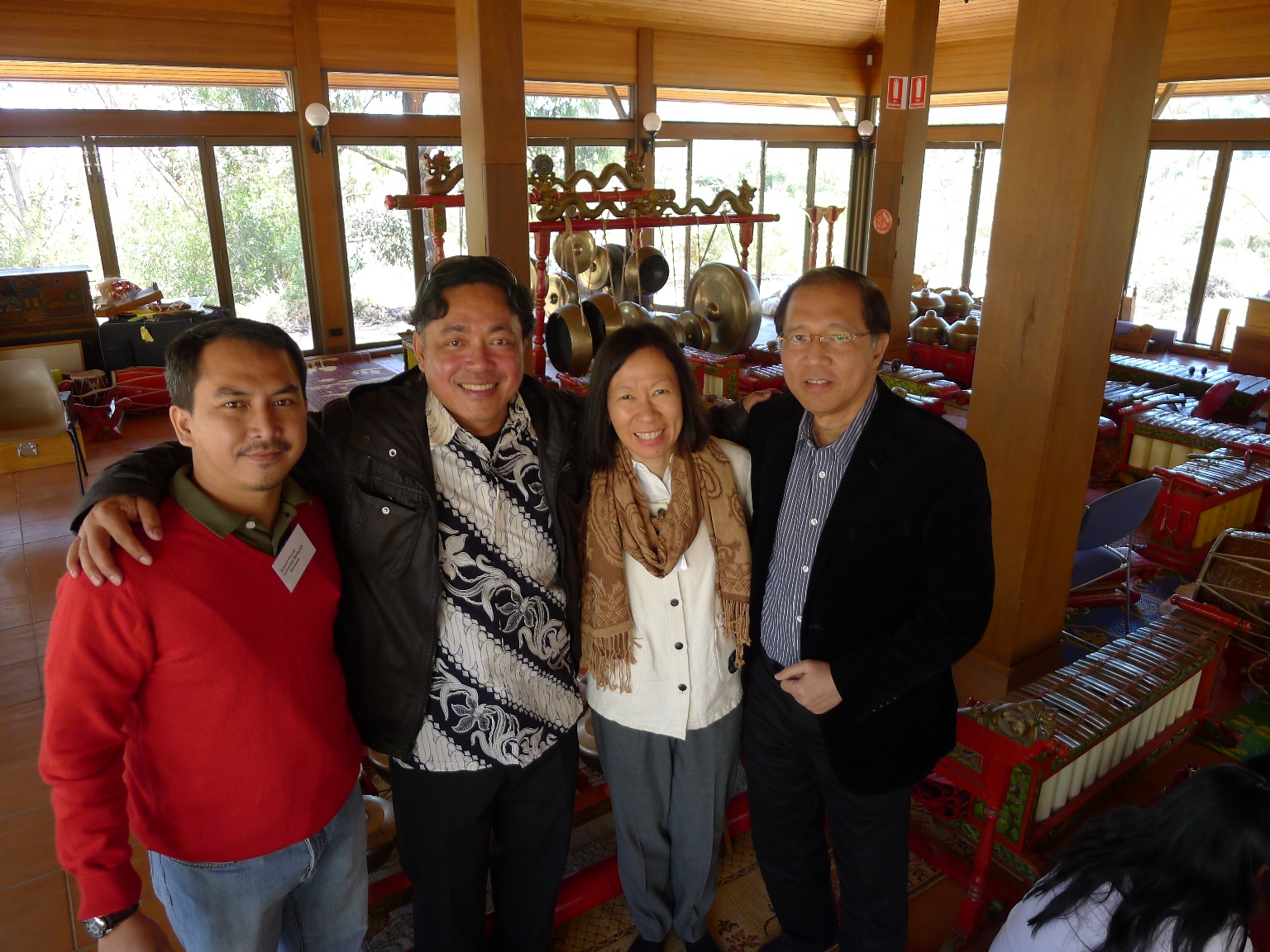
Asian Center Students Take Part in India-ASEAN Exchange Program
PHOTO: Members of the Philippine Delegation with Ambassador Ponappa. Courtesy of the India's Ministry of External Affairs' ASEAN-India Student Exchange Programme.
Dr. Eduardo Tadem Delivers a Paper on Philippine Political Dynasties

Professor Tadem and his co-author, Dr. Teresa Encarnacion Tadem of the University of the Philippines' Department of Political Science examine the general nature of Philippine political dynasties, the reasons for their continuing existence and their adverse impact on the country. This problem emanates basically from three factors: (1) the political and socio-economic foundations upon which political dynasties are built; 2) the inability to effectively implement Philippine constitutional provisions by enacting an enabling law; and 3) the weakness of potential countervailing forces that would challenge political dynasties.
PHOTO (From Left): Arnold Puyok (Universiti Malaysia Sarawak), Priyambudi Sulistiyanto, Workshop Organizer and Head, Flinders Asia Center, Dr Teresa Encarnacion Tadem, and Dr. Eduardo Tadem.
According to the organizers, the workshop 'brings together scholars from across Southeast Asia to share their research on political dynasties in the region to discuss questions including, why do political dynasties thrive in many Southeast Asian nations regardless of their political systems in place? Are modernisation and democratisation incompatible with dynastic and patrimonial politics?'
Paper presenters came from the Philippines, Thailand, Singapore, Indonesia and local cases studies in Sabah, Central Java, and Central Kalimantan.

